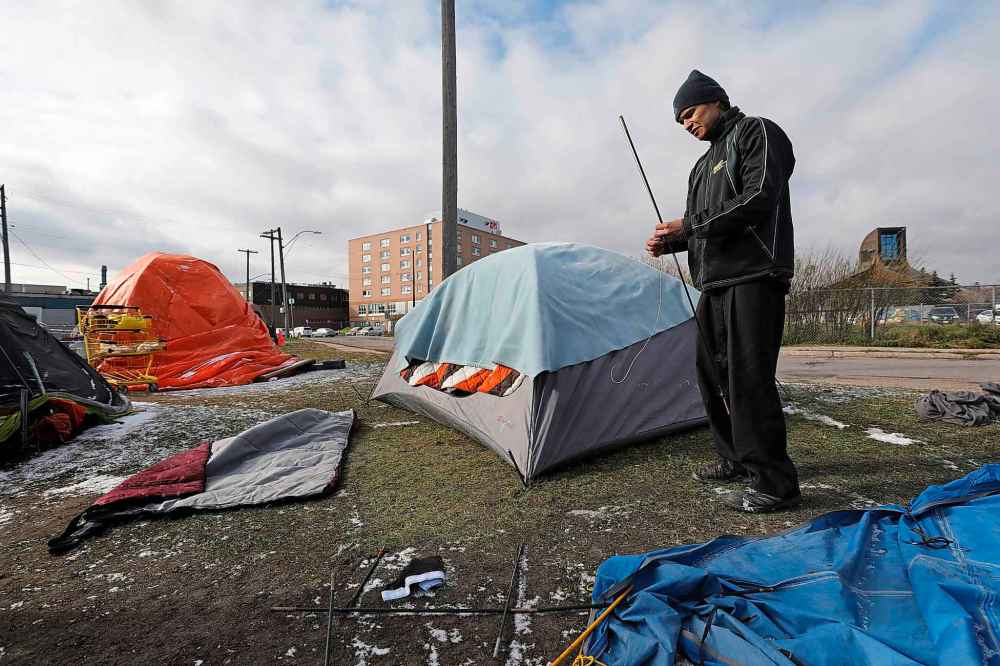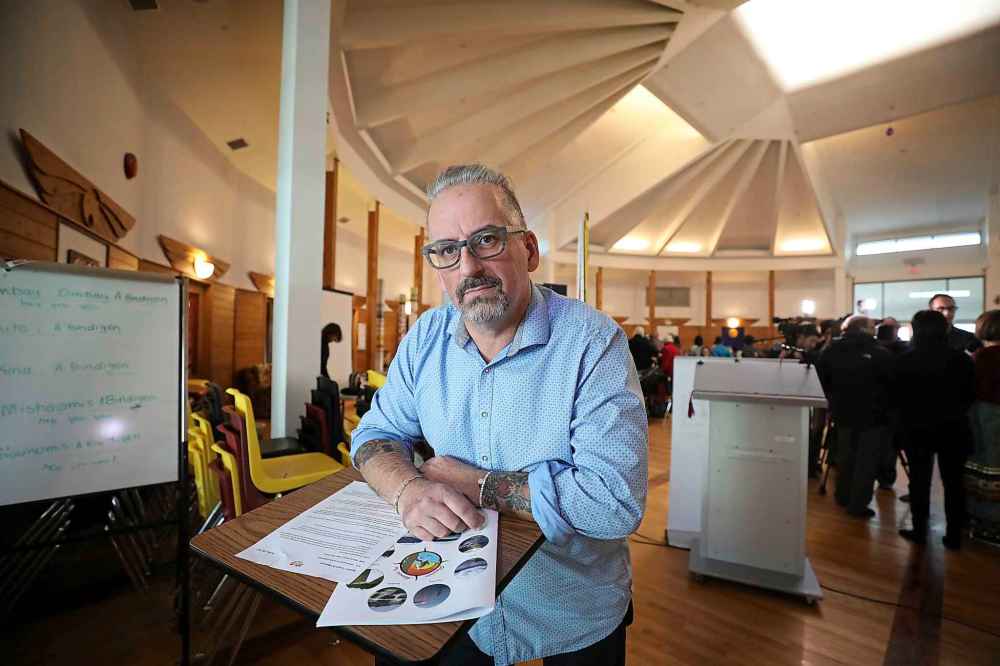End Homelessness Winnipeg unveils five-year plan
Advertisement
Read this article for free:
or
Already have an account? Log in here »
To continue reading, please subscribe:
Monthly Digital Subscription
$19 $0 for the first 4 weeks*
- Enjoy unlimited reading on winnipegfreepress.com
- Read the E-Edition, our digital replica newspaper
- Access News Break, our award-winning app
- Play interactive puzzles
*No charge for 4 weeks then billed as $19 every four weeks (new subscribers and qualified returning subscribers only). Cancel anytime.
Read unlimited articles for free today:
or
Already have an account? Log in here »
Hey there, time traveller!
This article was published 27/10/2019 (1840 days ago), so information in it may no longer be current.
At a tent village in the shadow of Thunderbird House, Johnny Guiboche had little interest in End Homelessness Winnipeg’s announcement it had transitioned to an Indigenous organization and unveiled a five-year plan to live up to its name.
The way to end homeless in Winnipeg is to give people second — and maybe third — chances, Guiboche said Monday.
The chatty 33-year-old, who has lived in rooming houses and “squatted” in condemned buildings, said he’s been banned from certain Winnipeg shelters. What he and everyone needs at some point, Guiboche said, is a “reset.”

End Homelessness Winnipeg has undergone a major reset.
It started in 2012, with a United Way and Winnipeg Poverty Reduction Council task force delivering funding to local organizations working to assist and support individuals and families experiencing homelessness.
Now, as an Indigenous entity — defined as having at least 75 per cent of its board and 75 per cent of its staff First Nations, Inuit or Métis — End Homelessness Winnipeg is better-equipped to meet the mandate in its name, its leaders say.
“We know Indigenous people are over-represented in homelessness,” said Jason Whitford, chairman of the board of directors. “We know we need to change things.”
End Homelessness Winnipeg launched a 10-year plan in 2014. On Monday, at the halfway point, executive director Lucille Bruce explained its targets for the next five years, including the creation of 1,340 additional housing units, housing 1,519 people experiencing homelessness, and reducing the Indigenous over-representation in emergency shelters by 50 per cent.
The plan is aligned with the directives of Reaching Home, the government of Canada’s homelessness strategy, that’s investing $10 million a year for the next four years in resolving homelessness in Winnipeg.

It conducted discussion groups, surveys and outreach to identify how to help the most. Half of the respondents were homeless or had been homeless at some point, said Perry Goddard, senior director of Reaching Home and homelessness initiatives at End Homelessness Winnipeg.
As a result of the consultations and research, End Homelessness Winnipeg is directing 25 per cent of the funding for housing services, 22 per cent for prevention and shelter diversion, 21 per cent for support services, 18 per cent for capital investments, and 14 per cent for co-ordination of resources and data collection.
Combined with more than $10 million in funding from other levels of government, charities, foundations and the private sector, Winnipeg has an estimated $20 million a year to get things done, said Goddard.
“If we’re strategic, this will allow us to make dramatic dent in the number of individuals experiencing homelessness,” Goddard told the crowd gathered Monday at Thunderbird House.
A block away, Guiboche said he couldn’t imagine being in a place of his own.

He was focused winterizing a tent with layers of blankets. He said it belonged to his young adult god-children on the street and he could not “abandon them.”
carol.sanders@freepress.mb.ca

Carol Sanders
Legislature reporter
After 20 years of reporting on the growing diversity of people calling Manitoba home, Carol moved to the legislature bureau in early 2020.
Our newsroom depends on a growing audience of readers to power our journalism. If you are not a paid reader, please consider becoming a subscriber.
Our newsroom depends on its audience of readers to power our journalism. Thank you for your support.




